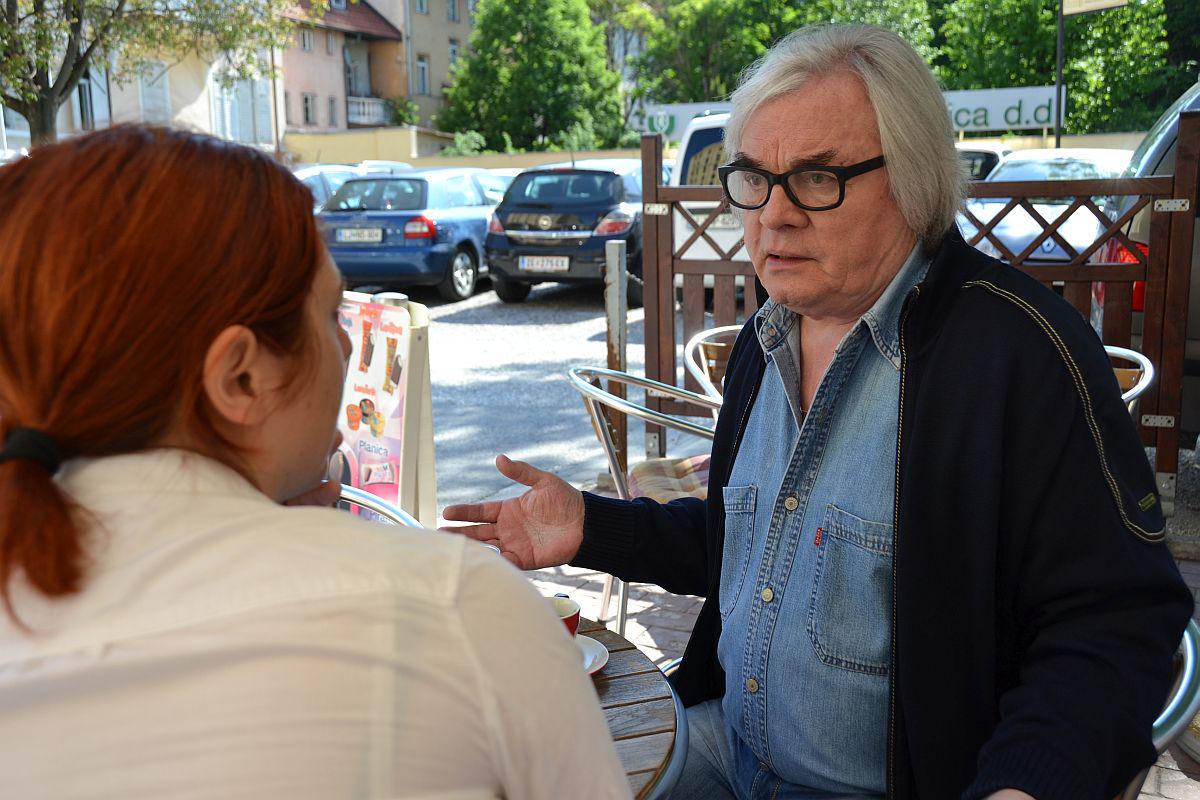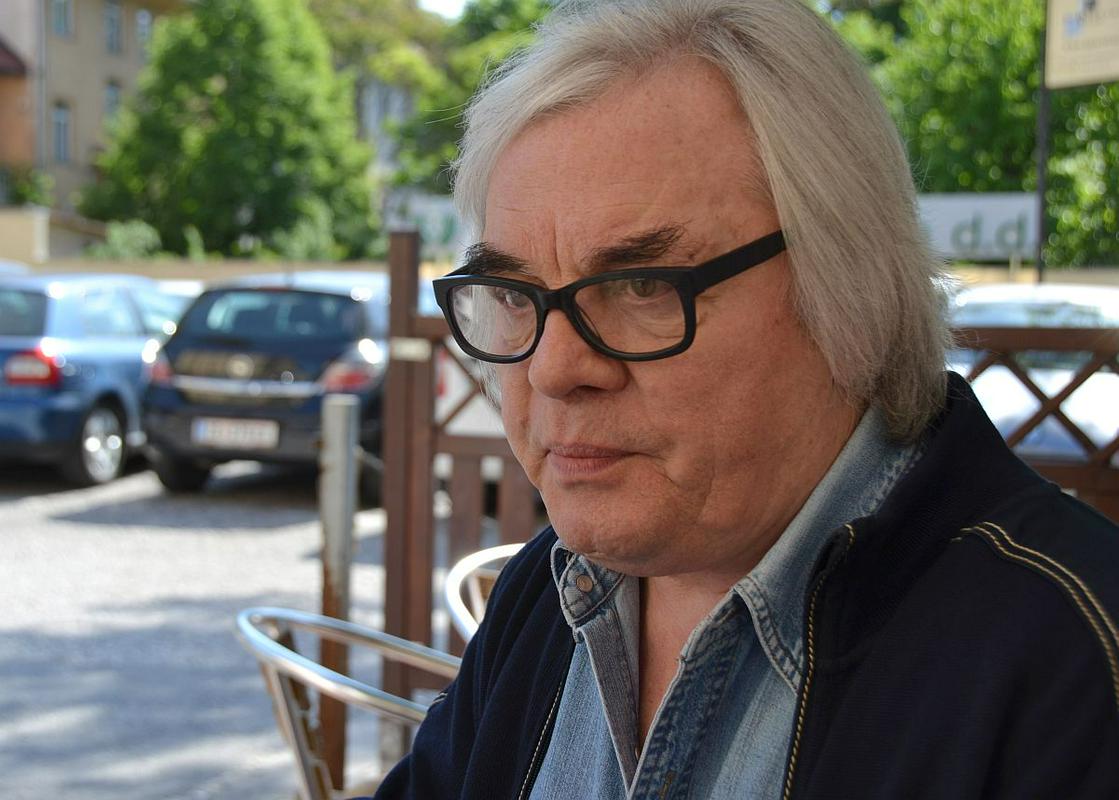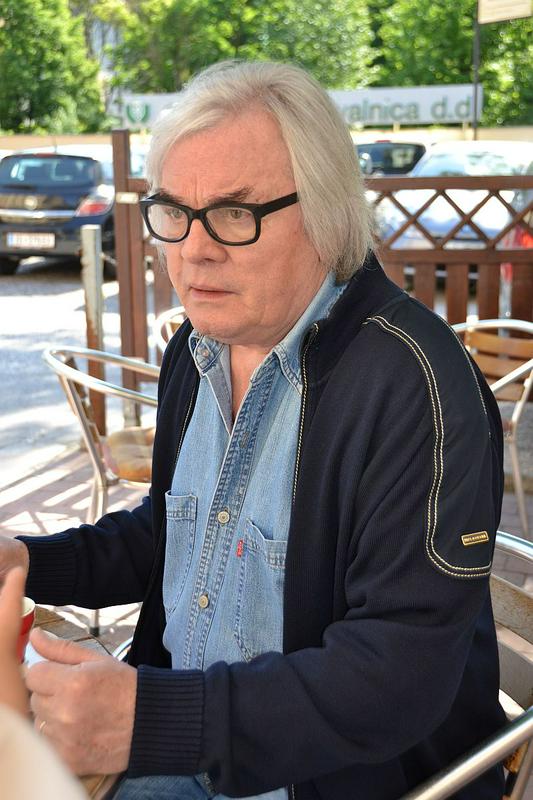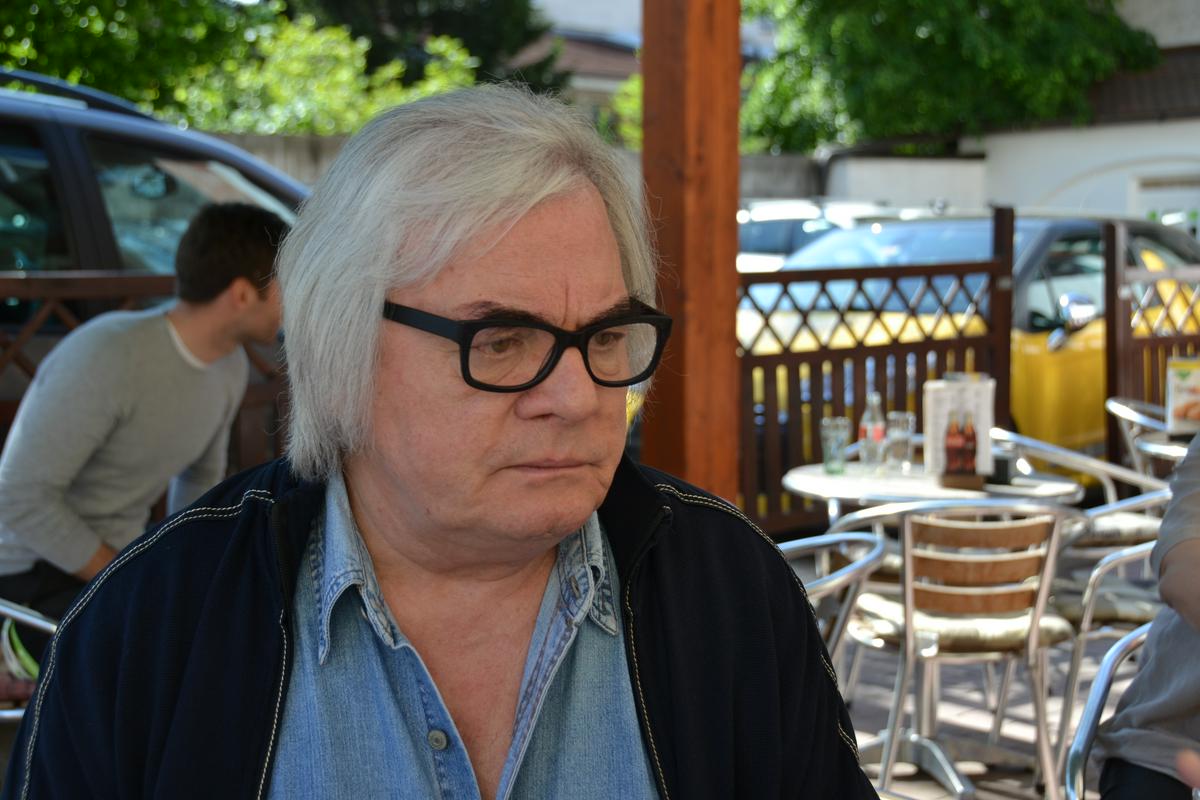


At the contest held on April 8 he won the 8th place among 17 contestants with Vse rože sveta, (lyrics Milan Lindič, composed by Urban Koder). The winner of the contest was Sandy Shaw with Puppet On A String, which still today remains one of the best known Eurovision song.
Yugoslavia was the only socialistic republic participating at Eurovision. The song to represent the country at Eurovision was chosen through a national contest, where representatives of the six republics and two autonomous regions participated. In the year Lado won, the national contest was held in Ljubljana. He was invited to participate by Urban Koder. "When the song was ready, Urban said to me that they had a song for me, if I would like to sing it." One thing led to another, and with his performance in Studio 26 Leskovar managed to convince the Yugoslav audience.
He claims he was not surprised to be chosen as the Yugoslav representative: "I was not surprised, because it was a good song. Beautiful, and good. A lot of people don't know these are the attributes of a fateful song," he said and explained that he had understood the song in the spirit of the student revolution which happened a year after.
Even after 48 years, memories of his participation at Eurovision are still alive. Leskovar was only the second Yugoslave representative from Slovenia; the first was Berta Ambrož in 1966 with the song Brez besed (Without words) who finished on the 7th place.
After a long drive they finally reached Vienna, but no luxury waited for them there. "We didn't have a lot of money. We did stay in a hotel in the centre of the city, but it had only communal bathrooms, with no bathrooms in our rooms," he remembers.
Today's Eurovision is primarily a great spectacle and a show; at that time things were different. "Only singers performed then, while today three quarters of those performing at the Eurovision stage are never heard of again."
The vocalists were accompanied by an orchestra, which was a great challenge for the performers. The first rehearsal brought a great surprise: "When I came to the rehearsal I saw Lado Kovač at the drums, Bor Roković at the piano, Duško Gojković played the trumpet – all friends of mine! When I asked them what they were doing there, they told me the Austrians borrowed them. At that time they were playing in the Kurt Edlbauer's orchestra, the best known jazz orchestra of that period."
Today one of the most discussed topics is the visual image. How was it then?
We took care of our clothes, at our own expense, remembers Leskovar, and adds that those were different times; the emphasis was on the quality of the song, and the voice. "As today, Eurovision had high viewership, and it was mostly considered a prestigious competition."
A case of plum brandy made the unofficial reception unforgettable
Also then delegations of individual countries organized receptions, which were an excellent opportunity for casual socializing of musicians. "We had no money for organizing a reception, which I knew even before leaving for Vienna, therefore I smuggled a case of plum brandy. After a rehearsal I organized a memorable reception," he explained: good will and resourcefulness can very effectively replace a huge financial input. "We stayed in Vienna for approximately one week. Every evening we spent in the suburb of Grinzing, where we socialised with musicians from other countries in a relaxed atmosphere."
He shared the dressing room with Claudio Villa, now deceased, who was at the time the brightest star of the Italian canzona. He hardly felt any stage fright: "It is obvious from the recording," he laughs.
Another performance after performance
After the conclusion of the event, which was then held in the Hofburg Palace, a traditional reception for all the performing artists was organised, where an orchestra performed. "When they started playing the song Strangers in the Night, I asked the conductor if I could sing with the orchestra. And so I was the only one to sing for the colleagues, and met with their great approval. It really is a fond memory," the singer reminisced, and continued that also a number of perfectly groomed ladies at the reception stuck in his mind as well, who immediately and shamelessly attacked the food arranged on the tables. "I preferred to have a drink, so I went to the bar, where a Bosnian working there gave me a bottle of whiskey, and thus took care of the good mood for the evening."
After a week or so they returned to the homeland. Lado says there were various responses: "You know that the Slovenians can't help being jealous; I still have fond memories of Vienna." He remained involved with Eurovision also afterwards, mostly as a journalist and editor, and the head of the Slovenian delegations. This year especially he follows the happenings at "his Vienna" with great interest.
Ksenja Tratnik, translated by G. K.
Below you can see Lado Leskovar's performance at Eurovision 1967.


































































